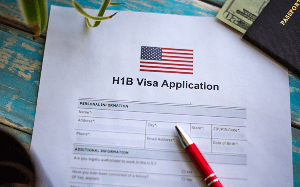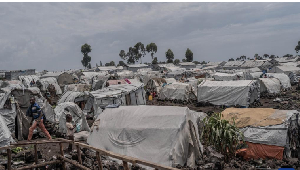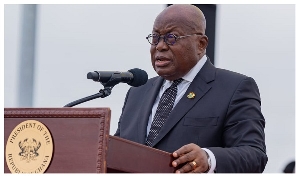- Home - News
- TWI News | TV
- Polls
- Year In Review
- News Archive
- Crime & Punishment
- Politics
- Regional
- Editorial
- Health
- Ghanaians Abroad
- Tabloid
- Africa
- Religion
- Election 2020
- Coronavirus
- News Videos | TV
- Photo Archives
- News Headlines
- Press Release
Editorial News of Wednesday, 22 March 2006
Source: Statesman
Editorial: World Water Day
? but clean water provision must be made priority year-round
For those who have it, it is taken for granted; for the one billion of the world?s poorest people who don?t, the value of fresh, clean, available water can be the price of life itself.
Today is World Water Day, and a new study on urban water in Africa, released this week and reported in this issue of The Statesman, reveals that governments across the continent are systematically failing their people when it comes to safe water provision.
Currently about 300 million people in Africa do not have access to safe water, and 313 million do not have access to sanitation ? that, on a continent where the population is 700 million total.
Forget the negligence of foreign governments, the flighty interests and passing whims of foreign investors who have turned their backs on the not-so-lucrative commodity of African water ? an issue which has been widely reported in the local press this week.
It is the negligence of our own governments, over the last few decades, which ought to be our primary concern and target; instead of looking to the West for answers, the questions ought to be being asked far closer to home.
In spite of recent efforts, which have seen access to water increased in folds, in Accra the problems with our water system are still manifold: and in a city consistently listed as one of the fastest growing urban areas in all of Africa, with a per annum growth rate pushing 5 percent, these are problems which are likely to escalate as the city continues to swell. Years of neglect means that Government has to overlook other priority areas to make the kind of serious investment in urban water required to overturn the ever-expanding situation of population growth leaving infrastructural expansion behind.
The issue of fast migration with a slow accompanying infrastructure development is of course one of the major problems which need to be addressed, with people moving into areas on the outskirts of our capital city which are not yet properly serviced by not only running water but also other vital amenities: safe sanitation, electricity, as well as community facilities such as schools and hospitals.
But water is not just a problem in these rapidly developing areas; the construction and maintenance of an effective water system in Accra is lagging behind not just these peripheral areas, problematic though that is, but behind the formation of the city as a whole, with virtually no even long-established area boasting reliable 24/7 running water, and many areas accustomed to far less.
The water is turned on in parts of Adenta, Teshie-Nungua and Madina just once a week, for example ? in fact, once every two weeks in recent months, as a slow rainy season left water supplies even lower than usual. Residents must fill as many containers as they can in that few-hour window in which they enjoy the ?luxury? of running water, and then ration it carefully until the time comes when they can collect it again.
The same could be listed for parts of Kumasi and other urban areas around the country. But, with the coming in of the private sector January this year to manage GWCL and going by the contractual obligations on the new managers, there is a lot of optimism in the air.
Yet, we believe a manager or a minister is as good as the size of investment he has to work with. If Government really wants to make the current management team work, it should be looking far beyond donor support and the relatively meager investment in water ? vis-?-vis the enormity of the problem.
For a country that judges the performances of a person not by the constraints of the office, Government may end up giving private/public sector partnership a bad name if it does not empower the new managers of GWCL to perform and make real visible impact on the ground.
Because Ghana is not a desert: our lands are green, we have months when it does nothing but rain. Water usage should never be frivolous, but there is no reason why, if properly managed, it needs to be elitist: clean water is a basic human necessity, but in Ghana it is denied millions not because it is not there, but simply because the sufficient structures are not in place to keep it clean and get it distributed to those who need it.
Accra?s water supply comes principally from two main dams: Kpong, which serves the east of the city, and Weija, which serves the west. Why these are in themselves insufficient to be providing for a city where the demand is only going to increase is a question which needs to be asked.
Another question is why we rely on these dams in the first place; in a coastal city through which many rivers and streams flow in their final break for the sea, there are vast volumes of water running directly through Accra, which would not need to be piped in, at twice the cost, from elsewhere, if we look wider.
The answer, of course, is far too easy for us all to smell: by the time these ?rivers? have reached Accra, they have become little more than open sewers, bearing the waste from not only this city but dumped in them along their long paths, too.
What we need is proper restrictions on water pollution, strictly enforced. We need proper water treatment plants, to prevent the dumping of sewage into our rivers ? the fishing, washing, swimming, even drinking water of many rural communities ? and the subsequent dumping of this uncleaned river water into the sea ? the same for our fishing communities, and a wasted tourist potential as sewers and not swimmers line the beaches.
We call on Government on this World Water Day to remember the necessity of clean, safe, running water, universally accessible, to everybody, on every day of the year. The health and development of this country is dependent upon it.










